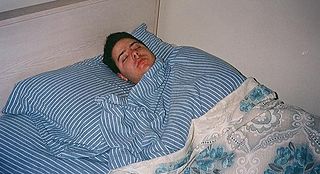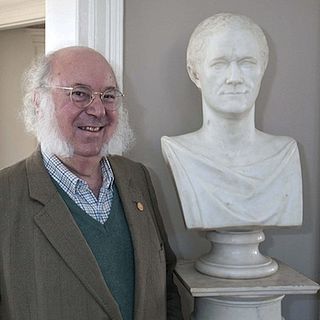| Discipline | Sociology |
|---|---|
| Language | English |
| Edited by | Scott Schaffer |
| Publication details | |
Publication history | 2000-2004 |
| Frequency | Triannual |
| Standard abbreviations | |
| J. Mundane Behav. | |
| Indexing | |
| ISSN | 1529-3041 |
| LCCN | 00214452 |
| OCLC no. | 43635461 |
The Journal of Mundane Behavior was a triannual peer-reviewed academic journal of sociology covering everyday behavior and experiences. It was published online with three issues a year. The journal's first issue came out in February 2000 and the last issue appeared in 2004.

An academic or scholarly journal is a periodical publication in which scholarship relating to a particular academic discipline is published. Academic journals serve as permanent and transparent forums for the presentation, scrutiny, and discussion of research. They are usually peer-reviewed or refereed. Content typically takes the form of articles presenting original research, review articles, and book reviews. The purpose of an academic journal, according to Henry Oldenburg, is to give researchers a venue to "impart their knowledge to one another, and contribute what they can to the Grand design of improving natural knowledge, and perfecting all Philosophical Arts, and Sciences."

Sociology is the scientific study of society, patterns of social relationships, social interaction, and culture of everyday life. It is a social science that uses various methods of empirical investigation and critical analysis to develop a body of knowledge about social order, acceptance, and change or social evolution. While some sociologists conduct research that may be applied directly to social policy and welfare, others focus primarily on refining the theoretical understanding of social processes. Subject matter ranges from the micro-sociology level of individual agency and interaction to the macro level of systems and the social structure.

Everyday life, daily life or routine life comprises the ways in which people typically act, think, and feel on a daily basis. Everyday life may be described as mundane, routine, natural, habitual, or normal.
The journal was dedicated to exploring "the minor, redundant and commonplace scenes of life" and celebrating "the majesty of the obvious". [1] The first issue included articles about the behavior of Japanese people on elevators, the arrangement of books on library shelves, and the social implications of facial hair. [2] The journal reflected a recent trend among sociologists to "investigate the largely unconscious verbal and nonverbal conventions of everyday social interactions," in contrast to the field's historical focus on deviant behavior. [3]

Facial hair is hair grown on the face, usually on the chin, cheeks, and upper lip region. It is typically a secondary sex characteristic of human males. Men typically start developing facial hair in the later years of puberty or adolescence, between seventeen and twenty years of age, and most do not finish developing a full adult beard until their early twenties or later. This varies, as boys may first develop facial hair between fourteen and sixteen years of age, and boys as young as eleven have been known to develop facial hair. Women are also capable of developing facial hair, especially after menopause, though typically significantly less than men. Men may style their facial hair into beards, moustaches, goatees or sideburns; others completely shave their facial hair. The term whiskers, when used to refer to human facial hair, indicates the hair on the chin and cheeks.

In sociology, deviance describes an action or behavior that violates social norms, including a formally enacted rule, as well as informal violations of social norms. Although deviance may have a negative connotation, the violation of social norms is not always a negative action; positive deviation exists in some situations. Although a norm is violated, a behavior can still be classified as positive or acceptable.
The editor-in-chief was Scott Schaffer (Millersville University of Pennsylvania). The original concept for the journal came from Schaffer and founding co-editor Myron Orleans (California State University, Fullerton). They were "inspired in part by an article in the scholarly journal Sociological Theory that called for closer inspection of those parts of life that we routinely ignore." [2] The two universities co-hosted the site.
An editor-in-chief, also known as lead editor or chief editor, is a publication's editorial leader who has final responsibility for its operations and policies. The highest ranking editor of a publication may also be titled editor, managing editor, or executive editor, but where these titles are held while someone else is editor-in-chief, the editor-in-chief outranks the others.

Millersville University of Pennsylvania is a public university in Millersville, Pennsylvania. It is one of the fourteen schools that comprise the Pennsylvania State System of Higher Education (PASSHE). Founded in 1855 as the first Normal School in Pennsylvania, Millersville is accredited by the Middle States Association of Colleges and Secondary Schools and the Pennsylvania Department of Education.

California State University, Fullerton is a public university in Fullerton, California. With a total enrollment of about 40,400, it has the largest student body out of the 23-campus California State University (CSU) system, and its approximately 5,800 graduate student body is also the largest in the CSU and one of the largest in all of California. As of Fall 2016, the school had 2,083 faculty, of which 782 were on the tenure track.








